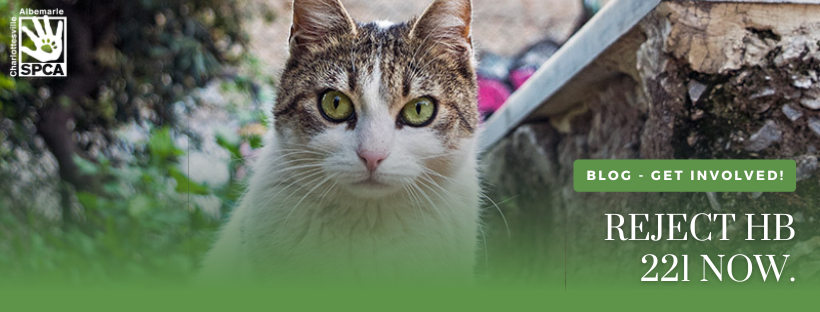Amidst the ongoing legislative session, a surge of proposals offers hope for animal welfare. Yet
one bill, HB 221, elicits more concern than optimism. This legislation grants the Board of
Agriculture and Consumer Service (VDACs) the power to impose regulations on community cat
management, behind closed doors, with no input from TNVR advocates who understand the
benefits of this program.
While HB 221 seems innocuous at first glance, a peek at the coalition behind the bill reveals
their true intentions. The current debate on HB 221 exposes a symphony of ambiguous
language and unnecessary regulation. I encourage all to hear the counter-narrative from the
leading experts in Community Cat Management. Trap-Neuter-Vaccinate-Return (TNVR)
initiatives are the most effective and humane ways to address the community cat population.
Community Cat caregivers are individuals dedicated to reducing the free-roaming cat population
through humane and compassionate means. They self-fund their efforts, collaborating with
non-profits and municipalities alike to bring this proven solution to their communities. These
programs are effective, protect public health and are fiscally responsible.
Experts foresee detrimental repercussions of additional regulations on an already strained
system. TNVR initiatives will suffer and likely be replaced by expensive, inhumane and
ineffective trap-and-kill methods, putting shelters in an untenable position to euthanize healthy
animals. When cats are removed from the environment, the remaining cats reproduce at a rate
that quickly replaces those that were removed. No community has ever euthanized their way to
eliminating the community cat population.
Our appeal is straightforward:
1. Increase state funding for high volume spay/neuter programs, the linchpin for TNVR success.
2. Address the veterinary shortage creatively—offer state tuition reimbursement to entice
veterinarians to serve in Virginia Spay/Neuter Clinics or expand Veterinary Technician Licensure
to include simple surgeries, like cat neuters.
We urge supporters to email or call their legislators, saying NO to HB 221. To find your delegate,
visit https://whosmy.virginiageneralassembly.gov/. While acknowledging its intent, the key to
addressing free-roaming cats lies in supporting TNVR initiatives. By expanding licensure and
boosting funding, legislators empower those at the forefront, ensuring a humane solution to this
complex issue. Reject HB 221 now.




Leave A Comment